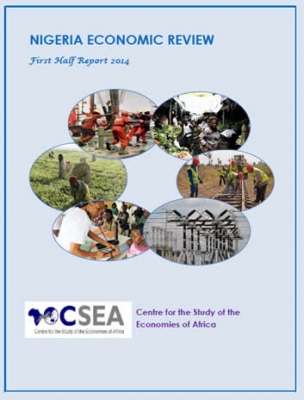Total
federally collected revenue increased to N2.42 trillion in 2014Q1 compared to
N2.20 trillion in 2013Q4 as a result of a significant increase in crude oil and
gas exports to some countries like India, Malaysia and China. Also, the federal
government consistently incurred fiscal deficit from 2013Q1 to 2014Q1; the
level of deficit increased drastically in 2013Q4 and was sustained through 2014Q1.
Inflation
rate remained within the Central Banks target (6 9 percent) for 2014
although it ticked up marginally from 7.7 percent in February to 8.0 percent in
May. Inflationary pressures are expected in the second half of the year but it
is expected that monetary policies and supply-side interventions can be used to
cushion the effect.

